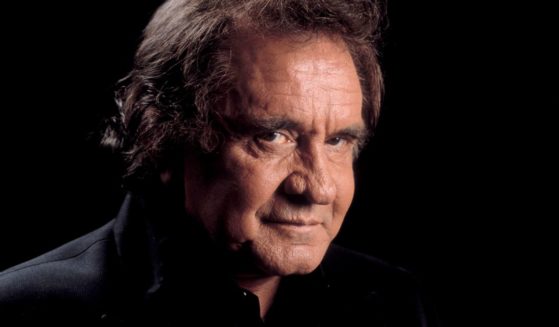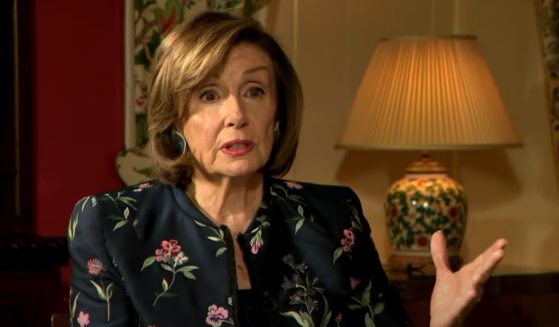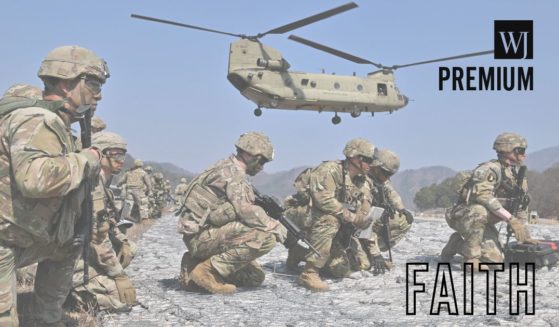Russia Warns US of 'Consequences' If Patriot Missile Battery Is Sent to Ukraine, As Is Reported
Russia’s Foreign Ministry warned Thursday that if the United States confirms reports that it plans to deliver sophisticated air defense missiles to Ukraine, it would be “another provocative move by the U.S.” that could prompt a response from Moscow.
Ministry spokesperson Maria Zakharova said in a weekly briefing Thursday that “the U.S. has effectively become a party” to the war in Ukraine, following reports that it will provide Kyiv with Patriot surface-to-air missiles, the most advanced the West has yet provided to help Ukraine’s military repel Russian aerial attacks.
Zakharova added that growing amounts of U.S. military assistance, including the transfer of such sophisticated weapons, “would mean even broader involvement of military personnel in the hostilities and could entail possible consequences.” She did not specify what the consequences might be.
U.S. officials said Tuesday that Washington was poised to approve sending a Patriot missile battery to Ukraine, finally agreeing to an urgent request from Ukrainian leaders desperate for more robust weapons to shoot down incoming Russian missiles that have crippled much of the country’s vital infrastructure. An official announcement is expected soon.
A Patriot battery can need as many as 90 troops to operate and maintain it, and for months the U.S. was reluctant to provide the complex system because sending forces into Ukraine to operate it is a non-starter for the administration of President Joe Biden.
Yet concerns remain that even without the presence of U.S. servicemen to train Ukrainians on how to use the system, deployment of the missiles could provoke Russia or risk that a fired projectile could end up hitting inside Russia, further escalating the conflict.
Even before reports emerged on the delivery of Patriot systems, Dmitry Medvedev, deputy head of Russia’s Security Council which is chaired by President Vladimir Putin, warned that if Patriots enter Ukraine “along with NATO personnel, they will immediately become a legitimate target for our armed forces.”
Asked Wednesday whether the Kremlin backs that threat, Kremlin spokesman Dmitry Peskov answered yes, but added in a conference call with reporters that he would refrain from more detailed comment until the U.S. officially announces the Patriot delivery to Ukraine.
Ukraine has so far been cautious in reacting to the reports. Hanna Maliar, Ukraine’s deputy defense minister, told reporters in Kyiv on Thursday that the delivery of weaponry like Patriots remains “sensitive not only for Ukraine, but for our partners,” and that only President Volodymyr Zelenskyy or Defense Minister Oleksiy Reznikov would make any official announcement on such an agreement.
White House and Pentagon leaders have said consistently that providing Ukraine with additional air defenses is a priority, and Patriot missiles have been under consideration for some time. Officials said that as the winter closed in and the Russian bombardment of civilian infrastructure escalated, that consideration took on increased priority.
Ukraine’s electricity provider said Thursday that the country’s energy system was suffering a “significant deficit of electricity,” and that emergency shutdowns had been applied in some areas of the country as temperatures hover around or below freezing.
The state-owned grid operator Ukrenergo warned in a statement on Facebook that damage caused to energy infrastructure by Russian attacks is being compounded by harsh weather conditions, including snow, ice and strong winds.
Maximum temperatures in the capital Kyiv were forecast to barely go above freezing headed into the weekend, with even colder weather expected early next week.
Kyrylo Tymoshenko, deputy head of the Ukrainian president’s office, wrote on Telegram that the southern Ukrainian city of Kherson was left completely without power following Russian shelling on Thursday, adding that two people were known to have been killed in the attacks.
Heavy shelling of a critical infrastructure facility in the city’s Korabelny district was still underway as of around 1 p.m. local time, and Russian shells had hit 100 yards from the regional administration building, he said.
As Russian attacks on civilian infrastructure continued to knock out power around the country on Wednesday and Thursday, seven civilians were killed and a further 19 wounded, according to a Thursday report from the Ukrainian president’s office.
The head of Ukraine’s eastern Donetsk province, Pavlo Kyrylenko, reported Thursday that Russian strikes the previous day had killed two civilians and injured seven.
In Avdiivka, some 6 miles north of Donetsk, there were two airstrikes overnight Wednesday, and a residential area came under rocket fire Thursday morning. Periodic artillery fire in Vuhledar, located to the southwest of Donetsk, damaged three houses. West of Donetsk, the city of Kurakhove and two villages came under fire, with one house damaged.
Kremlin-backed authorities in the region, which was illegally annexed by Moscow in September, announced that Russia had taken control of 80 percent of the city of Marinka, seen as critical to Ukrainian hopes of retaking the Russian-held regional capital, Donetsk.
The Moscow-installed mayor of Donetsk, Aleksei Kulemzin, said Thursday that the city center had been hit by “the most massive strike” since the area came under the control of Russian-backed separatists in 2014.
Writing on Telegram, Kulemzin said 40 Ukrainian rockets struck Donetsk at 7 a.m. local time on Thursday, noting that multistory residential buildings were hit and that fires had broken out at a hospital and university campus.
In other developments Thursday:
— Russia’s Foreign Ministry says the Vatican has apologized for a statement Pope Francis made in a recent interview in which he singled out two Russian ethnic minorities — the Chechens and the Buryats — as being “the most cruel” participants in the war in Ukraine.
At a briefing on Thursday, Zakharova quoted from what she said was a message from the Vatican which “apologizes to the Russian side” for the pope’s comments. Zakharova praised the message, saying that it showed the Vatican’s “ability to conduct dialogue and listen to interlocutors.” A Vatican spokesman, queried by reporters about Zakharova’s comments, would only say that there had been diplomatic contacts on the matter.
— The Kremlin on Thursday characterized a Polish resolution to recognize Russia as a state sponsor of terrorism as a continuation of “anti-Russian hysteria.”
Lawmakers in the Sejm, the lower house of Poland’s parliament, passed the resolution on Wednesday, a move that Kremlin press secretary Dmitry Peskov said Russia is not ready to accept. Poland’s resolution calls Russia’s aggression against Ukraine a “gross violation” of the U.N. Charter and Ukrainian “sovereignty, political independence, and territorial integrity.”
The Western Journal has reviewed this Associated Press story and may have altered it prior to publication to ensure that it meets our editorial standards.
Truth and Accuracy
We are committed to truth and accuracy in all of our journalism. Read our editorial standards.












